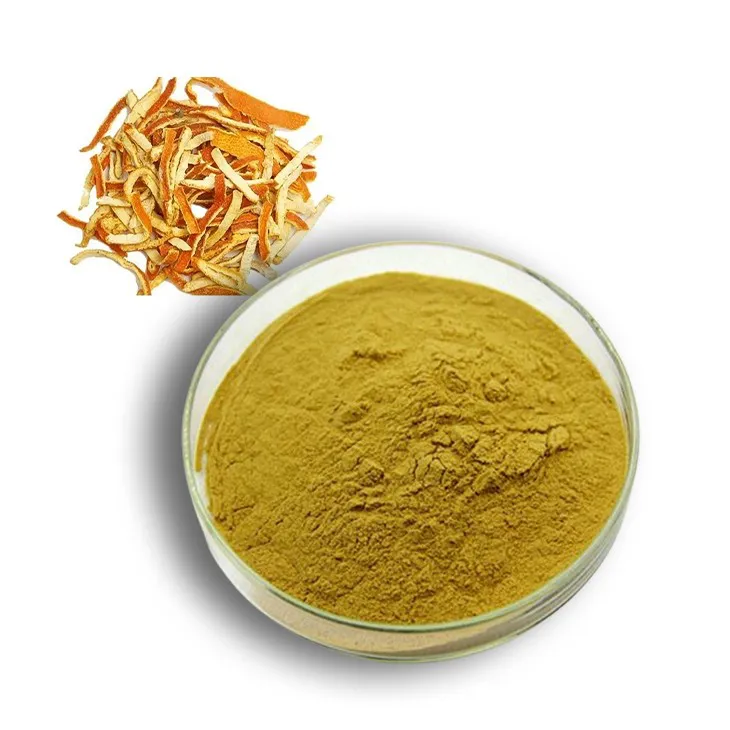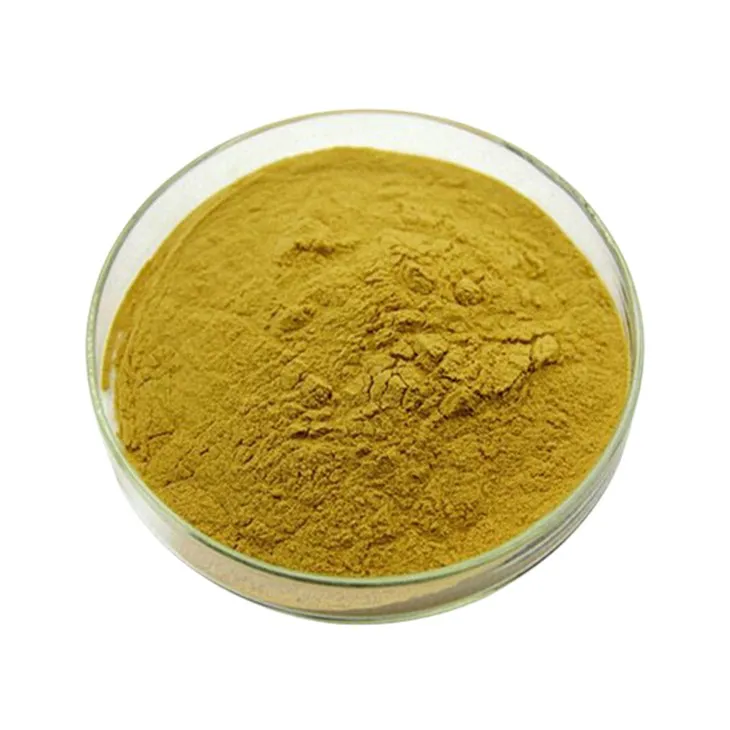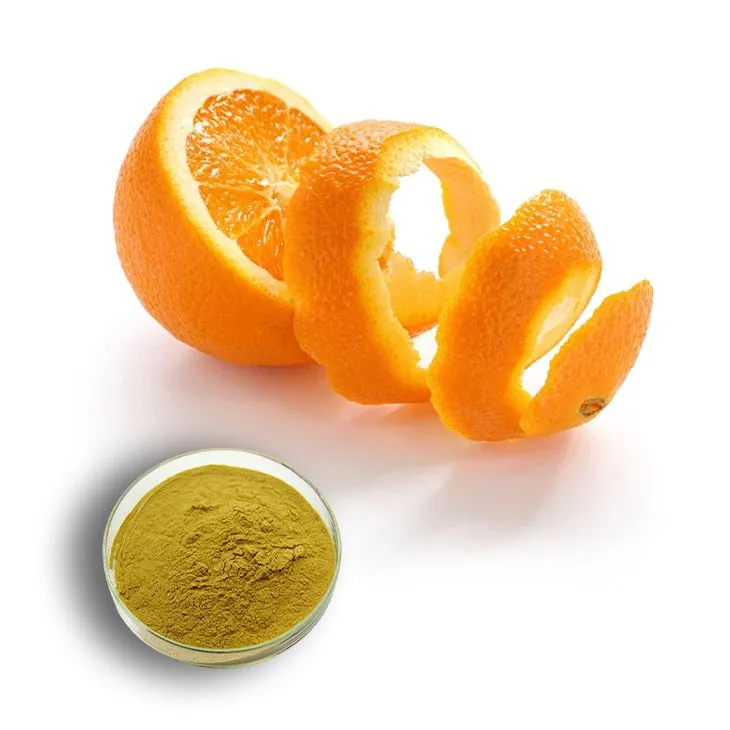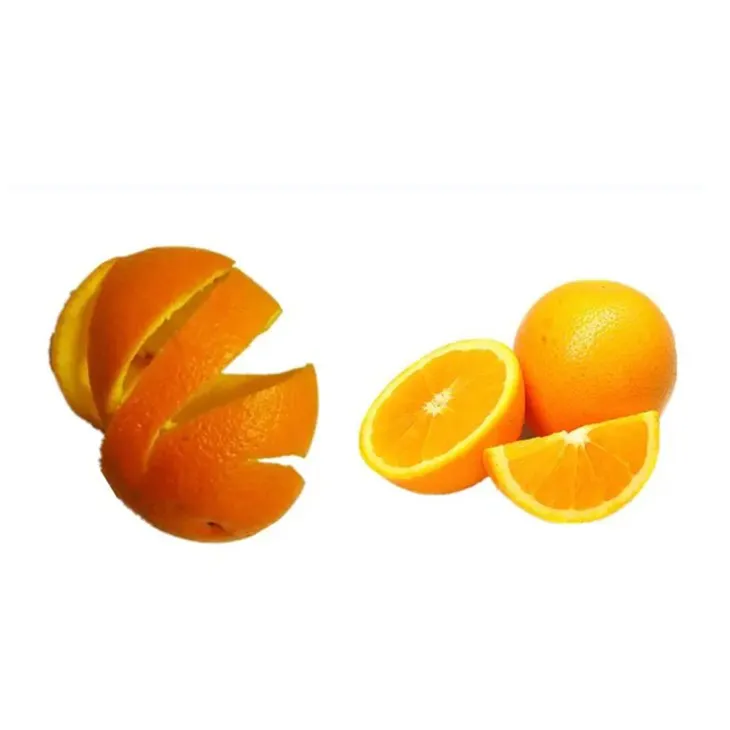- 0086-571-85302990
- sales@greenskybio.com
Hesperidin Manufacturers from China.
2024-11-27

1. Introduction
Hesperidin manufacturers from China are making their mark on the world stage. China, as a large agricultural country, has unique advantages in Hesperidin production. Hesperidin, a flavonoid mainly found in citrus fruits, has a wide range of applications in the fields of medicine, food, and cosmetics. China's large - scale citrus cultivation provides a stable and abundant raw material source for hesperidin production.

2. The Foundation of Production: Rich Agricultural Resources
China's citrus cultivation areas are widespread, covering many regions with suitable climates and soil conditions. This large - scale citrus cultivation not only ensures a sufficient supply of raw materials but also promotes the development of the local economy.
Abundant citrus resources mean that manufacturers can obtain a large amount of citrus peels, which are the main raw materials for hesperidin extraction. Different varieties of citrus may have slightly different hesperidin content, and Chinese manufacturers are constantly exploring and optimizing the selection of raw materials to improve the yield and quality of hesperidin.

3. Focus on Sustainable Production Methods
3.1 Environmental Protection Awareness
Chinese hesperidin manufacturers are increasingly aware of the importance of environmental protection. In the production process, they strive to reduce waste and emissions. For example, in the extraction process, they use environmentally friendly solvents as much as possible and recycle them to reduce pollution.
They also pay attention to the proper treatment of citrus waste. Instead of simply discarding the remaining parts after extraction, they explore ways to turn these wastes into useful resources, such as using them for composting or bio - energy production.
3.2 Sustainable Raw Material Sourcing
To ensure the long - term stability of production, manufacturers are committed to sustainable raw material sourcing. They cooperate with citrus farmers to promote sustainable farming methods. For example, they encourage farmers to use organic fertilizers and biological pest control methods, which not only protect the environment but also improve the quality of citrus fruits and, in turn, the quality of hesperidin.

4. Advanced Production Techniques
4.1 Modern Extraction Techniques
In terms of production, Chinese manufacturers utilize modern extraction techniques. One of the commonly used methods is solvent extraction. By carefully selecting suitable solvents, they can effectively dissolve hesperidin from citrus peels. This process requires precise control of parameters such as temperature, time, and solvent concentration to ensure the highest extraction efficiency.
Another technique is supercritical fluid extraction. This method uses supercritical fluids, such as supercritical CO₂, which has the advantages of being non - toxic, non - flammable, and having a high diffusion coefficient. It can extract hesperidin more selectively and with higher purity compared to traditional extraction methods.
4.2 Purification Techniques
After extraction, purification is crucial to obtain high - quality hesperidin. Manufacturers use various purification techniques, such as chromatography. Chromatography can separate hesperidin from other impurities based on differences in their physical and chemical properties. This process can effectively remove unwanted substances and improve the purity of hesperidin.
Crystallization is also an important purification method. By controlling the crystallization conditions, manufacturers can obtain hesperidin crystals with high purity and good crystallinity. These crystals are more suitable for further processing and application in different fields.

5. Rigorous Quality Control
5.1 Importance of Quality Control
Quality control is of utmost importance to Chinese hesperidin manufacturers. In the global market, the quality of products directly determines the competitiveness of manufacturers. High - quality hesperidin can meet the strict requirements of various industries, such as the pharmaceutical industry, which has high standards for the purity and safety of raw materials.
5.2 Testing at Each Production Stage
Manufacturers conduct rigorous testing at every stage of production. Before extraction, they test the quality of raw materials, including the content of hesperidin, the presence of pesticides, and heavy metals. Only raw materials that meet the standards are allowed to enter the production line.
During the extraction and purification process, they continuously monitor the quality of intermediate products. For example, they check the purity of the extracted hesperidin solution and the effectiveness of the purification process.
After the final product is obtained, comprehensive testing is carried out. This includes testing for chemical composition, physical properties, and microbiological safety. The final hesperidin product must be of high purity, free from contaminants, and meet international quality standards.
6. International Cooperation
6.1 Sharing Production Experience and Technology
Chinese hesperidin manufacturers are actively involved in international cooperation. They are willing to share their production experience and technology with other countries. For example, they can share their knowledge about efficient extraction techniques and quality control methods with developing countries, which helps these countries to improve their own hesperidin production capabilities.
Through international cooperation, Chinese manufacturers can also promote the standardization of hesperidin production on a global scale. By sharing their experience, they can contribute to the establishment of unified quality standards and production norms in the international hesperidin industry.
6.2 Learning from International Concepts
At the same time, Chinese manufacturers are constantly learning from advanced international management and quality control concepts. They study the management models of international leading companies in the hesperidin industry, such as how to optimize production processes, improve production efficiency, and enhance product quality.
In terms of quality control, they learn from international advanced testing methods and standards. This helps them to further improve their own quality control systems and ensure that their products can better meet the international market requirements.
7. Conclusion
In conclusion, Chinese hesperidin manufacturers have made significant progress in recent years. With their rich agricultural resources, focus on sustainable production methods, advanced production techniques, rigorous quality control, and active international cooperation, they are gradually becoming an important force in the global hesperidin market. They not only contribute to the development of the domestic economy but also play an important role in promoting the global development of the hesperidin industry.
FAQ:
What are the advantages of Chinese hesperidin manufacturers?
Chinese hesperidin manufacturers have several advantages. Firstly, China has rich agricultural resources, especially in citrus cultivation, which provides a solid raw material base for production. Secondly, they focus on sustainable production methods, meeting global demand while also protecting the environment. They use modern extraction and purification techniques to ensure high - quality products. Also, they attach great importance to quality control, with rigorous testing at each production stage to ensure high purity and no contaminants. Moreover, they are actively involved in international cooperation, sharing experience and technology and learning from international advanced concepts.
How do Chinese manufacturers ensure the quality of hesperidin?
Quality control is crucial for Chinese hesperidin manufacturers. They conduct rigorous testing at every stage of production. This includes testing the raw materials, intermediate products, and final products. By using advanced testing equipment and methods, they can ensure that the hesperidin products are of high purity and free from contaminants such as heavy metals, pesticides, and other harmful substances.
What role does international cooperation play for Chinese hesperidin manufacturers?
International cooperation is very important for Chinese hesperidin manufacturers. Through international cooperation, they can share their production experience and technology with other countries. At the same time, they can learn from advanced international management and quality control concepts. This helps them to improve their production processes, enhance product quality, and better meet the international market's requirements.
What extraction and purification techniques do Chinese manufacturers use for hesperidin?
Chinese manufacturers utilize modern extraction and purification techniques for hesperidin production. For example, they may use solvent extraction methods, which can effectively isolate hesperidin from citrus peels. Then, through purification processes such as chromatography, they can further purify the hesperidin to obtain a high - purity product. These techniques ensure the efficient extraction and high quality of hesperidin.
How do Chinese hesperidin manufacturers contribute to environmental protection?
Chinese hesperidin manufacturers contribute to environmental protection in multiple ways. They focus on sustainable production methods. For instance, in the process of citrus peel utilization for hesperidin extraction, they may develop ways to recycle waste generated during the production process. Also, by optimizing production processes, they can reduce energy consumption and emissions, minimizing the environmental impact of production.
Related literature
- Hesperidin Production in China: Current Situation and Future Prospects"
- "Chinese Hesperidin Manufacturers: A Global Perspective"
- "Sustainable Hesperidin Production by Chinese Manufacturers"
- ▶ Hesperidin
- ▶ citrus bioflavonoids
- ▶ plant extract
- ▶ lycopene
- ▶ Diosmin
- ▶ Grape seed extract
- ▶ Sea buckthorn Juice Powder
- ▶ Beetroot powder
- ▶ Hops Extract
- ▶ Artichoke Extract
- ▶ Reishi mushroom extract
- ▶ Astaxanthin
- ▶ Green Tea Extract
- ▶ Curcumin Extract
- ▶ Horse Chestnut Extract
- ▶ Other Problems
- ▶ Boswellia Serrata Extract
- ▶ Resveratrol Extract
- ▶ Marigold Extract
- ▶ Grape Leaf Extract
- ▶ blog3
- ▶ blog4
-
The best organic chia seed powder.
2024-11-27
-
The extraction process of Maca extract.
2024-11-27
-
Organic Motherwort Extract Powder Supplier.
2024-11-27
-
The Pure Vitamin K2 Most Worth Buying.
2024-11-27
-
Chinese Hawthorn Extract Powder Suppliers.
2024-11-27
-
The best Tongkat Ali extract in nature.
2024-11-27
-
Chinese Ginger Extract Powder Suppliers.
2024-11-27
-
Baicalin
2024-11-27
-
Acerola Juice Powder
2024-11-27
-
Pomegranate Extract
2024-11-27
-
Echinacea Extract
2024-11-27
-
Ginger Extract
2024-11-27
-
Hawthorn powder
2024-11-27
-
Buckthorn bark extract
2024-11-27
-
Astaxanthin
2024-11-27
-
Boswellia Serrata Extract
2024-11-27
-
Shikonin
2024-11-27





















